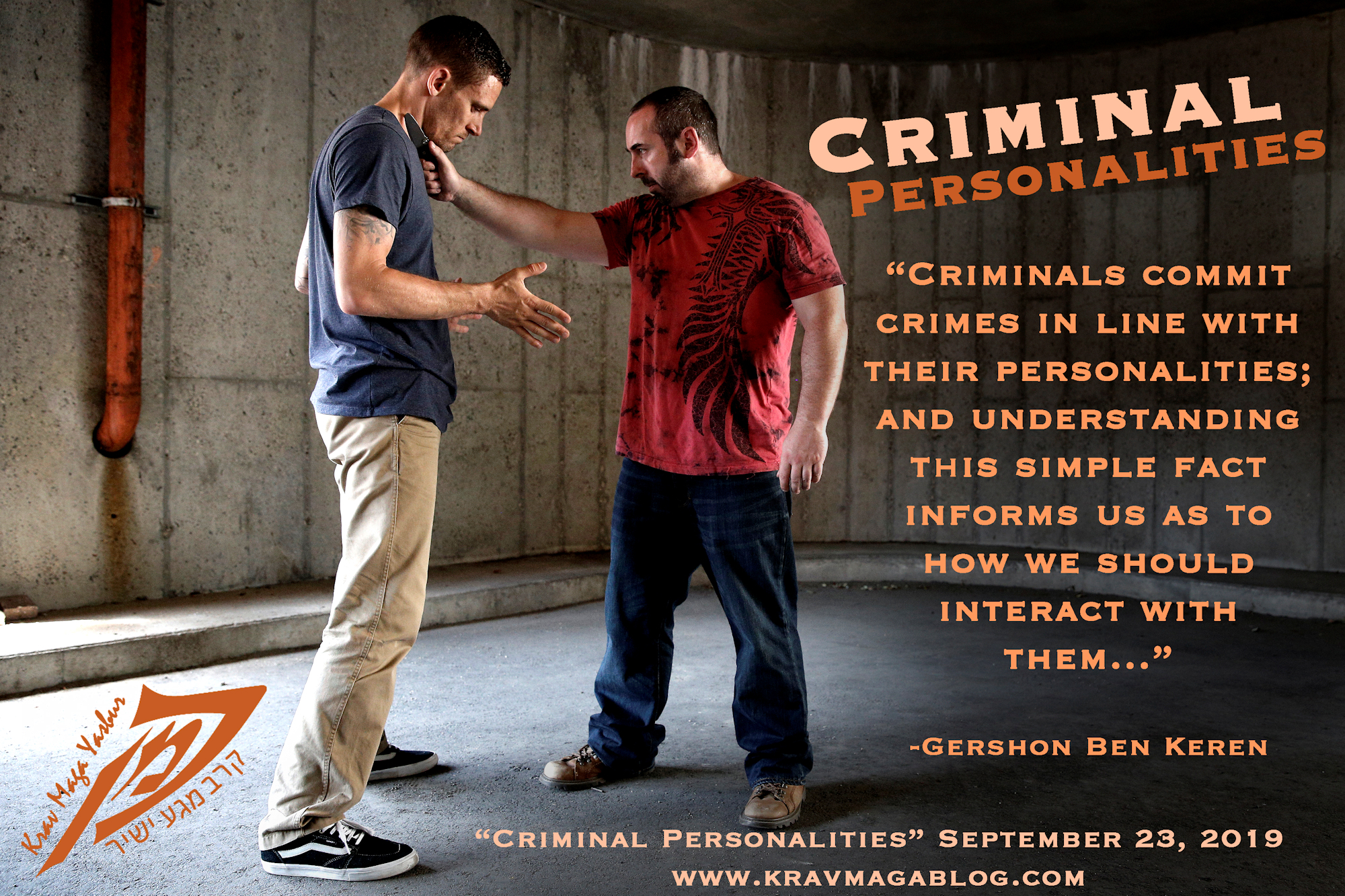Criminals commit crimes in line with their personalities; and understanding this simple fact informs us as to how we should interact with them – if our paths should ever happen to cross. Although committing a crime involves a certain level of “rational” decision-making, any cost-benefit analysis that is involved will differ from criminal to criminal e.g. a burglar is going to look at the risk of being caught, compared to the potential benefits and rewards they may receive, in a different way to a mugger, etc. Equally, persistent offenders are likely to be motivated differently, and engage in different decision-making processes to those who occasionally commit crimes e.g. there is likely to be a greater addiction to the thrill experienced during the offense. This article looks at why different criminals choose to engage in certain crimes rather than others, and why it is important to understand these differences.
For a large part of the 20th Century , Criminal and Forensic Psychologists attempted to define the “Criminal Personality”, believing/assuming that there was one common and universal personality that all criminals shared to some degree e.g. the world-view that burglars shared was the same as those who commit street robberies, and those that engage in white collar crimes such as fraud and embezzlement, etc. Whilst there may be commonalities in ways of thinking, and values held, amongst these different types of criminals — such as a belief that they are entitled to take what they want from others, etc. —the way in which they justify their actions is likely to be very different; the mugger may blame social conditions for forcing them to engage in robbery, whilst the white collar criminal might convince themselves that no one is individually affected or hurt by what they are doing. It would also be wrong to say that criminals universally don’t feel guilt concerning their actions – as many do. The view that the criminal mind is biologically different to the non-criminal mind, has experienced something of a resurgence in recent years, however there is no compelling argument to suggest that all criminals are wired differently to non-criminals, with the occasional shop-lifter likely to have more in common with a law-abiding citizen, than with a serial murderer, etc. By understanding some of the commonalities and distinct differences between criminals, we will be better positioned to understand how we should act and behave when encountering them.
To commit a mugging involves interacting with a victim and being prepared to act violently towards them – two things which most burglars want to avoid i.e. interaction and violence. A 2017 study (Edwards et al.) found that that there was a clear distinction in the personality types between offenders who committed street robberies, and those who engaged in property crimes, with those who engaged in muggings exhibiting more impulsive-antisocial traits than burglars e.g. they were much more likely to use violence, even when it was unnecessary to achieve their goals, and were far less remorseful about their actions, etc. Both shared similar levels of egocentricity and dishonesty, however those who committed property crimes were far more likely to be found on the Vulnerable Dark Spectra (VDS), than on the Dark Spectra (DS), with their narcissistic tendencies resulting from a sense of vulnerability, rather than from ideas of grandiosity. Whilst individuals high on either dimension (vulnerable or grandiose) are likely to interact with others in an antagonistic manner, those with vulnerable-narcissistic personality traits were less likely to be vindictive and domineering than their grandiose counterparts and were more likely to be avoidant of potential confrontations. What this tells us is that with muggers we should do everything to reinforce their view of themselves as the person in control, who occupies the position of power in the interaction e.g. if they want our wallet we should comply exactly with their demand to hand it over, rather than refuse them, or throw it on the ground away from us, etc. At the same time, we should be prepared to disengage as soon as we have a safe opportunity.
As well as muggers being more impulsive that burglars, they are also less likely to be able delay gratification in the same way. When a burglar commits a break-in and steal goods, it takes time for them to fully experience the rewards of their crime; they must first sell the goods they’ve stolen before they have the money to spend on the things they need. The mugger doesn’t experience this delay – as soon as they’ve committed a robbery, they have cash in their hand. This is one of the reasons they have chosen this career over shoplifting, burglary, or auto-theft, etc. This doesn’t mean that they necessarily wouldn’t commit these crimes if an easy opportunity presented itself, though they may recognize that they don’t have the knowledge or means to turn these crimes into cash, e.g. a mugger who steals a car may not know who to take it to in order to sell it, etc. If a criminal lacks a network in which to dispose of the things they’ve stolen, they may pass up the opportunity to do so — i.e. the risk is too great for the potential reward. Most burglaries involve a level of planning, and the decision to break into a property is usually made ahead of time and away from the property. This doesn’t mean that burglaries don’t contain opportunistic moments e.g. a property may have been selected beforehand as a potential target, however a realization that a car is not on a driveway, and that a window is open, determines that this is the moment in which to commit the crime. Muggings require much less planning and are almost completely dependent on opportunities.
Whilst disturbing a burglar in your house may seem a scarier proposition than dealing with a street robbery, the reality is that you are in all likelihood dealing with an individual who doesn’t want this interaction either and given the opportunity to exit the situation, usually will – unless they had a secondary motive for breaking in. However, when dealing with a mugger, we are engaging with somebody who has less inhibitions about using violence and may have chosen this particular criminal career because it gives them an opportunity and excuse to act violently against people. When we understand that the person may also be in a desperate state to get their next fix, we should look to comply with their demands for our resources as quickly as possible, in case they interpret our hesitation as non-compliance.
Share:

Gershon Ben Keren
2.8K FollowersGershon Ben Keren, is a criminologist, security consultant and Krav Maga Instructor (5th Degree Black Belt) who completed his instructor training in Israel. He has written three books on Krav Maga and was a 2010 inductee into the Museum of Israeli Martial Arts.
Click here to learn more.

